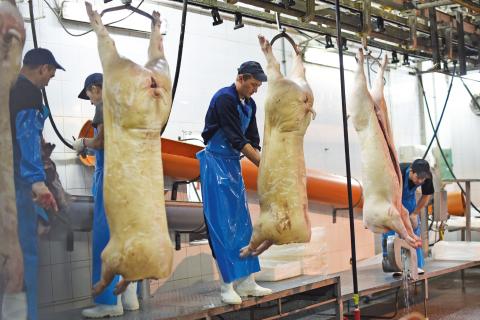Report on future post-Brexit employment policy 'fundamentally misses the point' - NPA
18th Sep 2018 / By Alistair Driver
A report setting out proposals for the UK’s employment policy after we leave the EU fundamentally misses the point, according to the NPA said.
 The Migration Advisory Committee (MAC) concluded that there is no need for agriculture to receive special treatment beyond seasonal workers, after we leave the EU.
The Migration Advisory Committee (MAC) concluded that there is no need for agriculture to receive special treatment beyond seasonal workers, after we leave the EU.
The committee, commissioned by the Government to collect evidence to underpin post-Brexit policy, said there should be no ‘explicit work migration route for low-skilled workers with the possible exception of a seasonal agricultural workers schemes’. The report, which can be viewed here, suggested the supply of low-skilled workers could be made up of existing EU workers, family labour and an expanded youth mobility scheme, rather than a dedicated employer scheme.
The committee also concluded EU workers coming to the UK should not be given preference for visas after we leave the EU and made recommendations to make it easier for higher-skilled workers to migrate to the country.
But it ignored the evidence submitted by the NPA and other organisations across the food and farming supply chain about the industry’s reliance on permanent EU labour, often in so-called ‘low-skilled’ positions. "We know that some sectors will lobby intensively against this proposal," the report acknowledged.
Incredibly disappointed
NPA chief executive Zoe Davies said: “We are incredibly disappointed by this report as itcompletely misses the point about the role played by EU workers in the pig sector and right across agriculture and blatantly dismisses the valid concerns that we and others have raised.
“We are fully supportive of measures to encourage more domestic workers into agriculture and are actively working to achieve this. But that cannot for a moment mask the fact that we will continue to be reliant on access to EU workers to carry out roles, which in many cases are defined by the Government as ‘low-skilled’, but in reality are far from that.
“The MAC received a weight of evidence from the food and farming sector to back this up, including the results of our own member survey highlighting this sector’s dependence on EU workers.
“The MAC’s report could have serious implications for the UK’s ability to produce its own food. If our future access to EU labour is significantly restricted, the UK pig sector will simply not be in a position to produce and process the top quality British pork products enjoyed by consumers around the world.
“We are appalled at how flippantly our evidence had been ignored and urge the Government to ignore the report’s findings in relation to agriculture. Do we really want to export our food production capacity with such an uncertain future ahead of us?”
NPA survey results
A survey of NPA members from across the pig sector in October 2017 showed:
- Just over a half of respondents employed at least one non-UK worker, with 24% hiring more than a quarter of their labour from overseas.
- Around 90% of businesses using non-UK labour employed them on a permanent basis, with 94% of non-UK workers coming from the EU.
- 64% of those employing EU labour said it had become harder to find EU labour since the vote. None said it had got easier.
- Nearly half of those employing EU labour said EU workers they employed were considering leaving the UK due to uncertainty over Brexit.